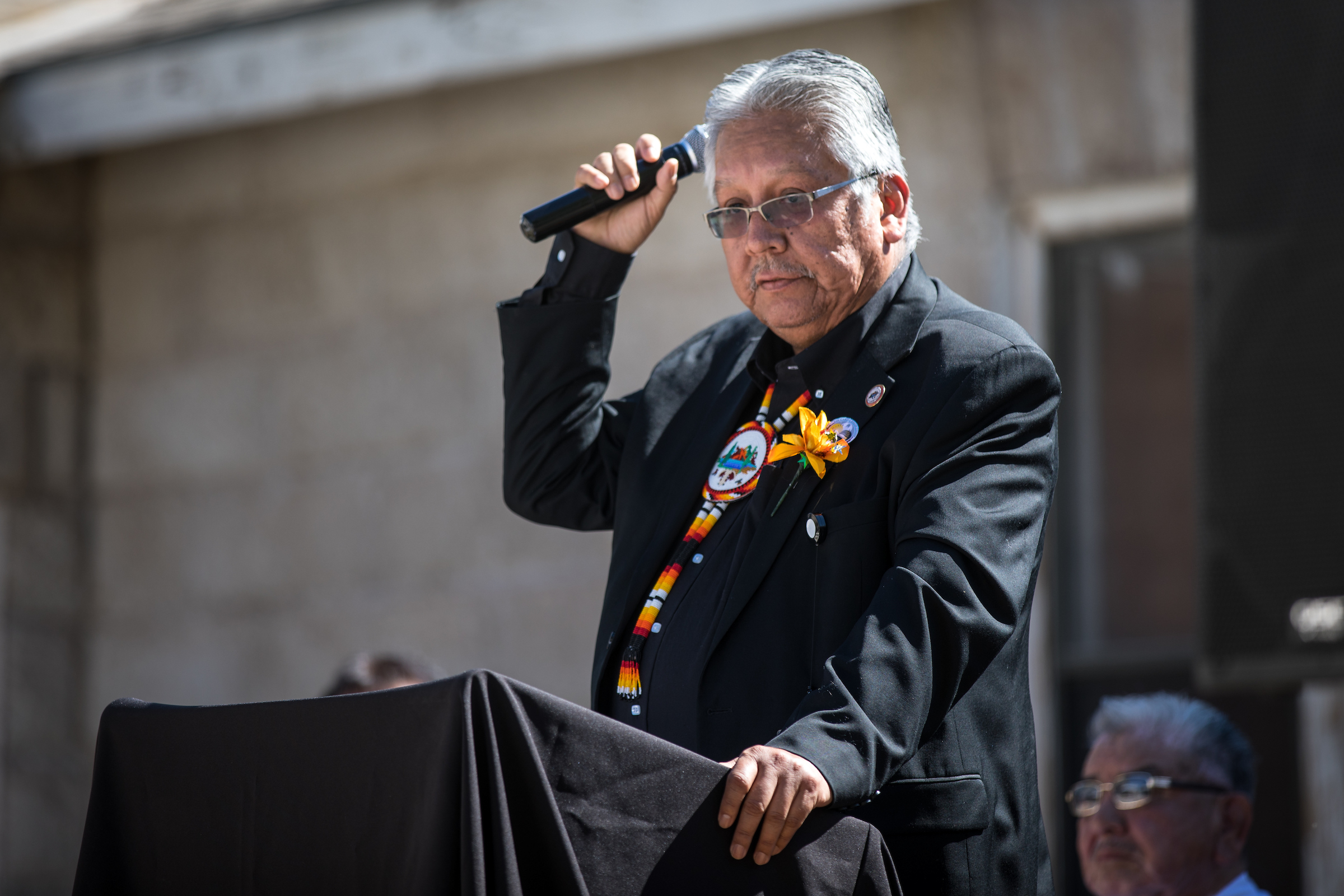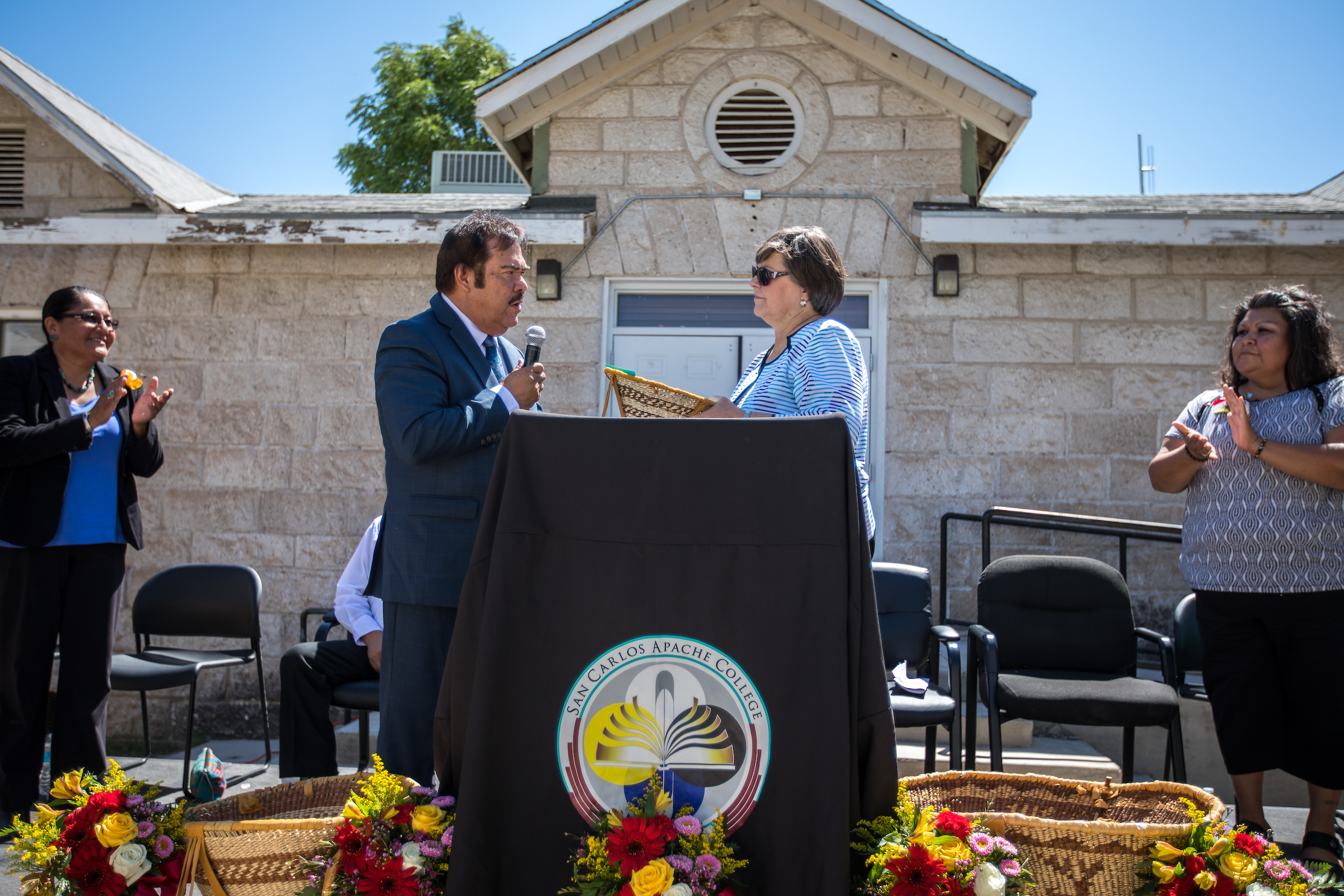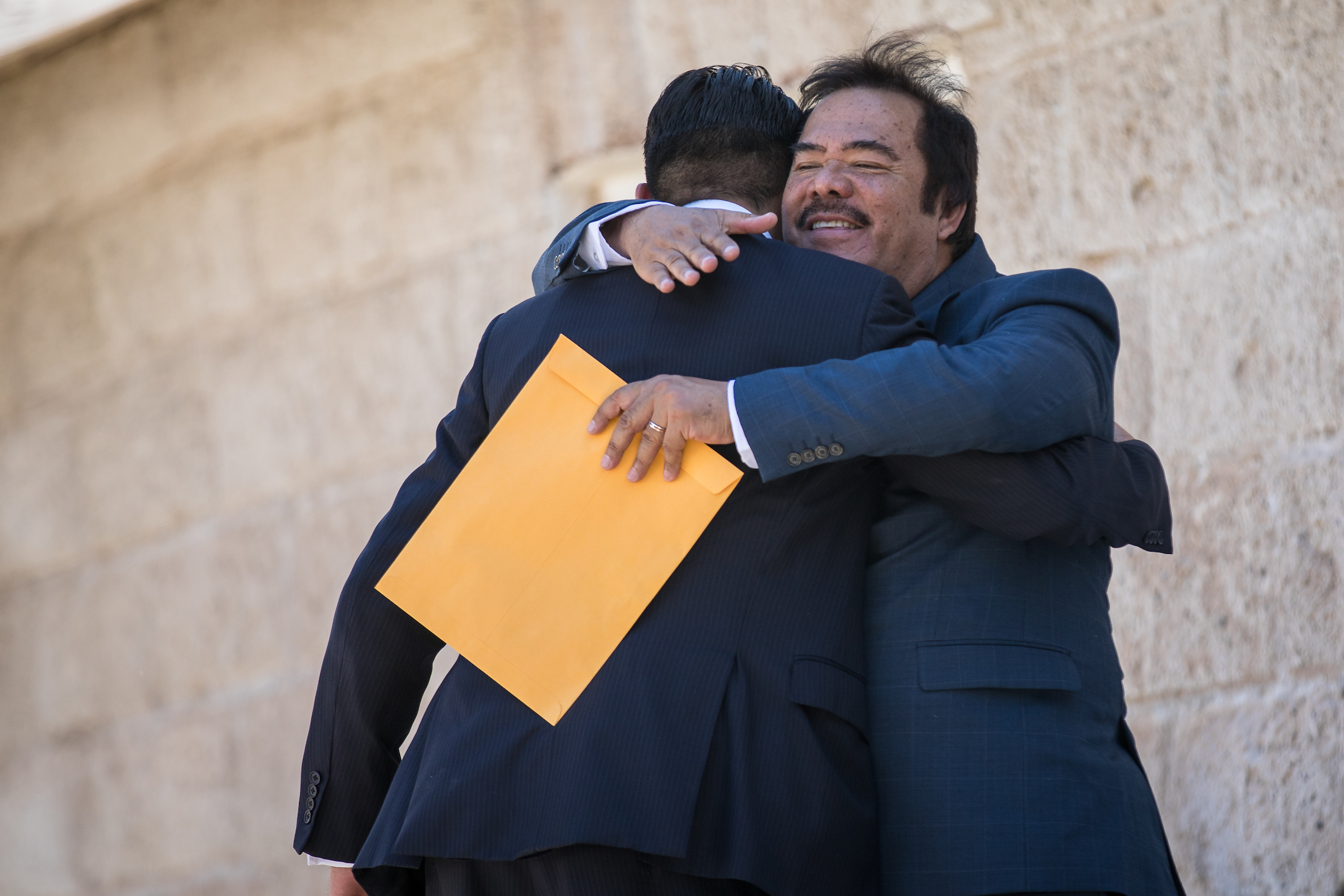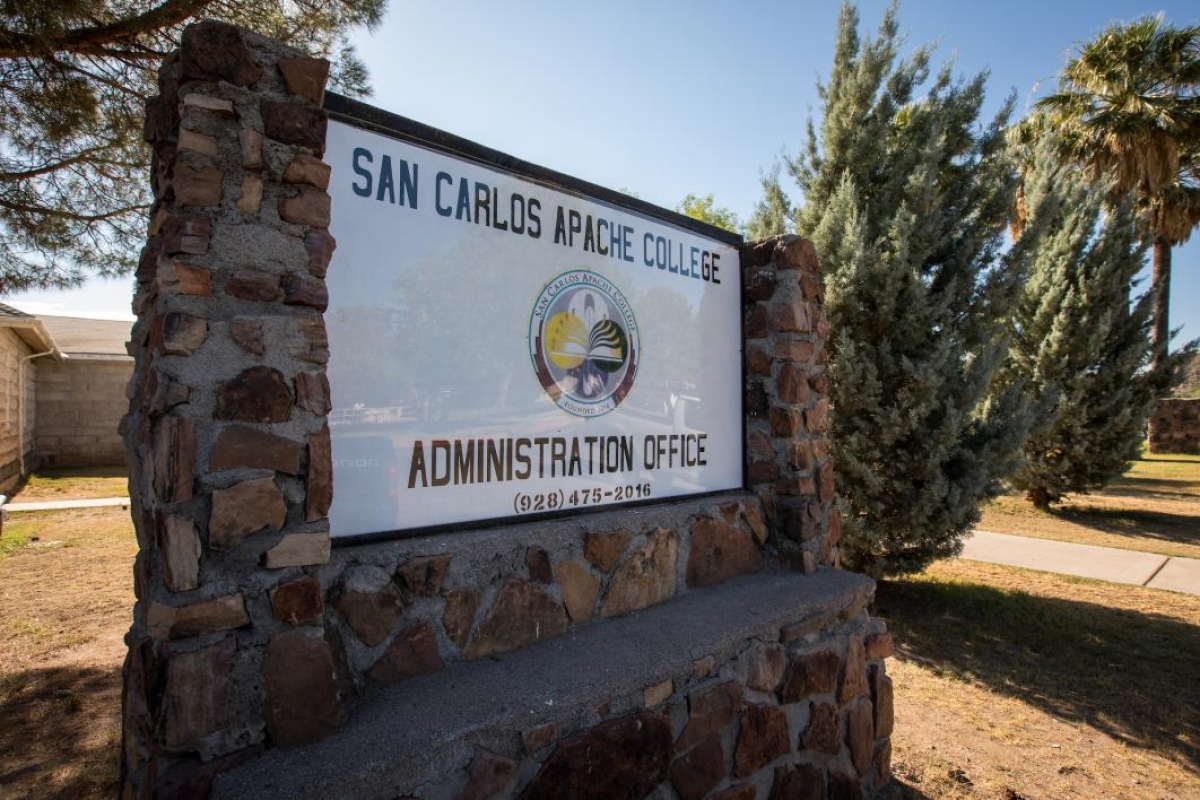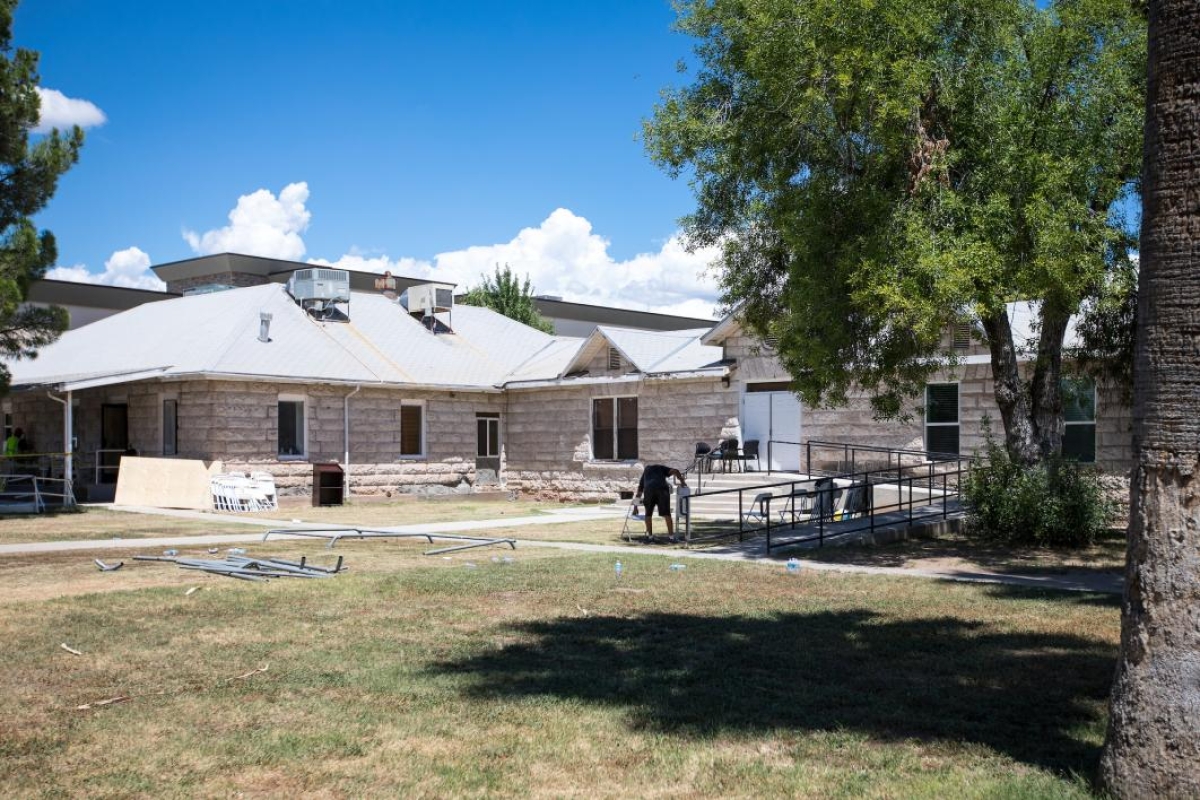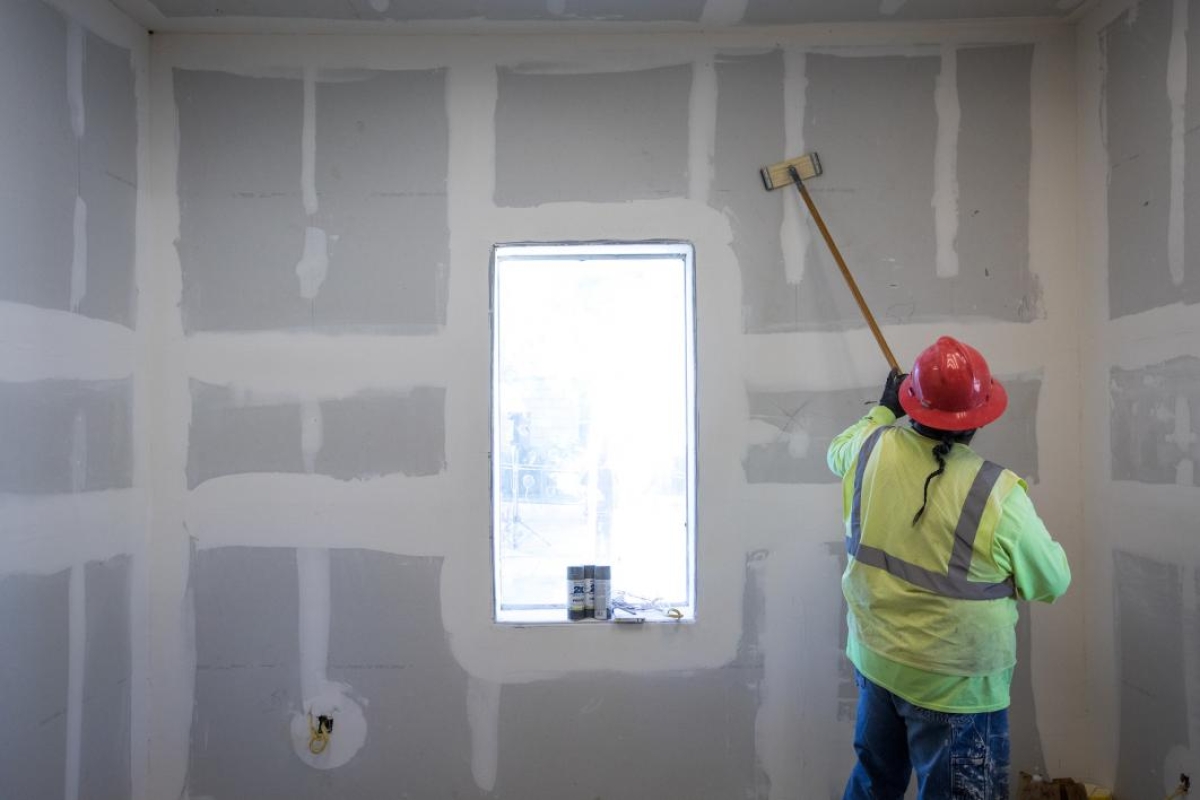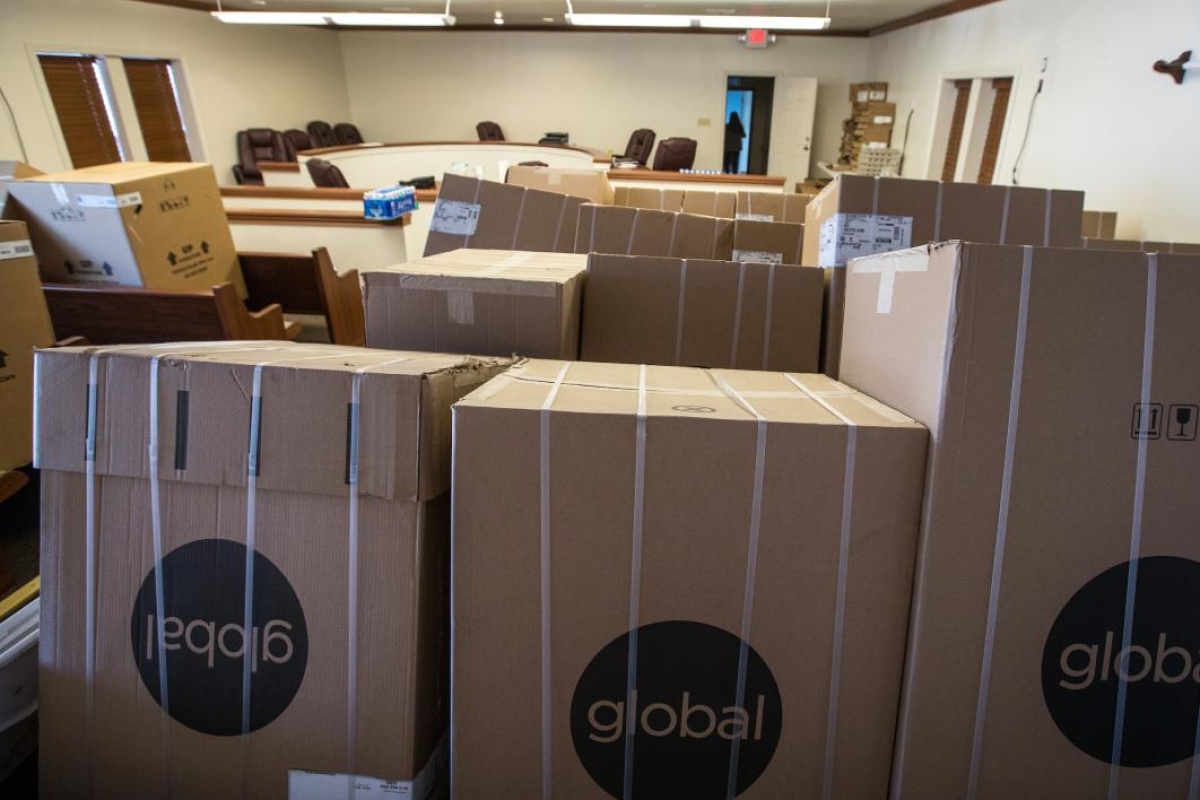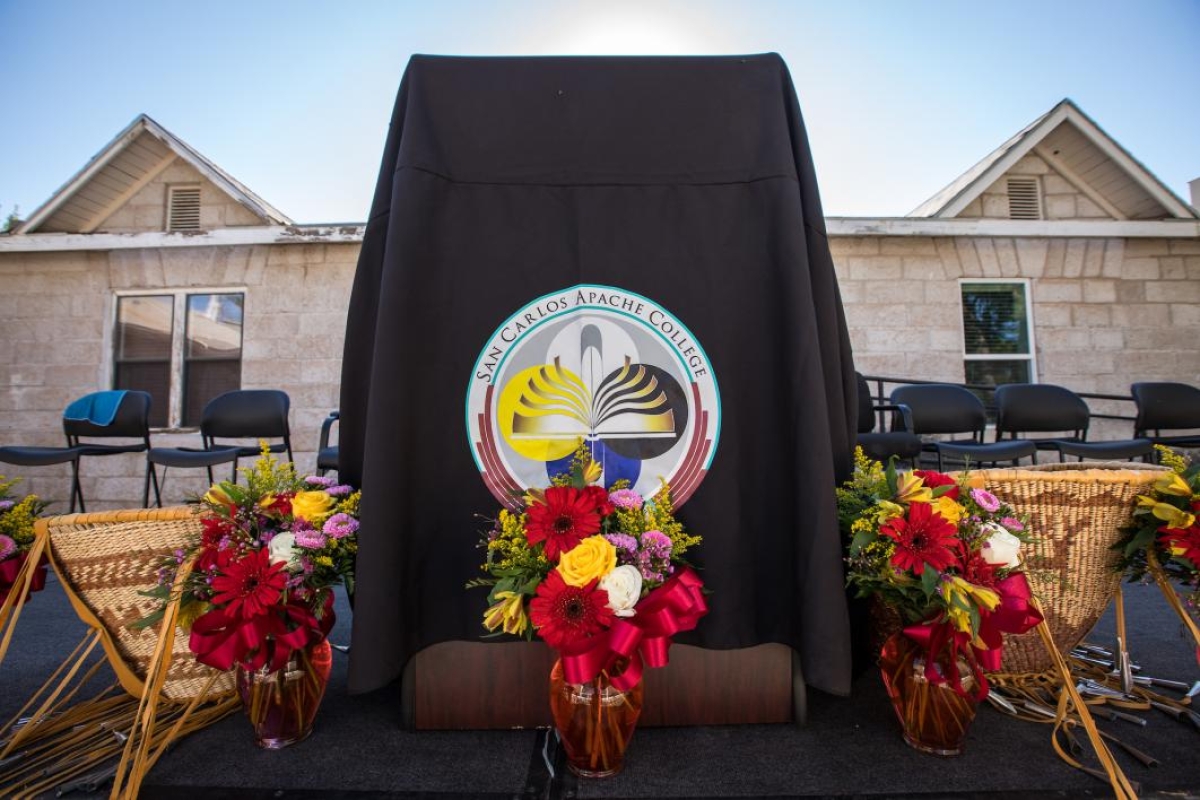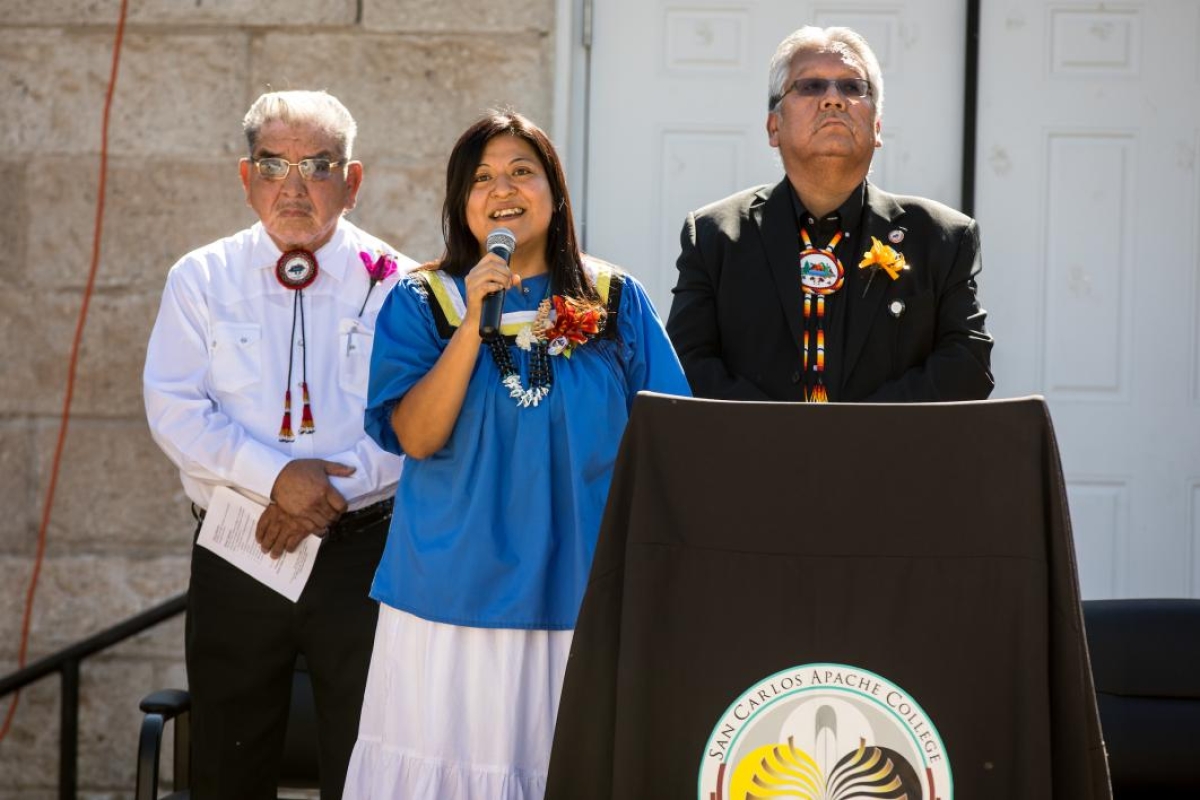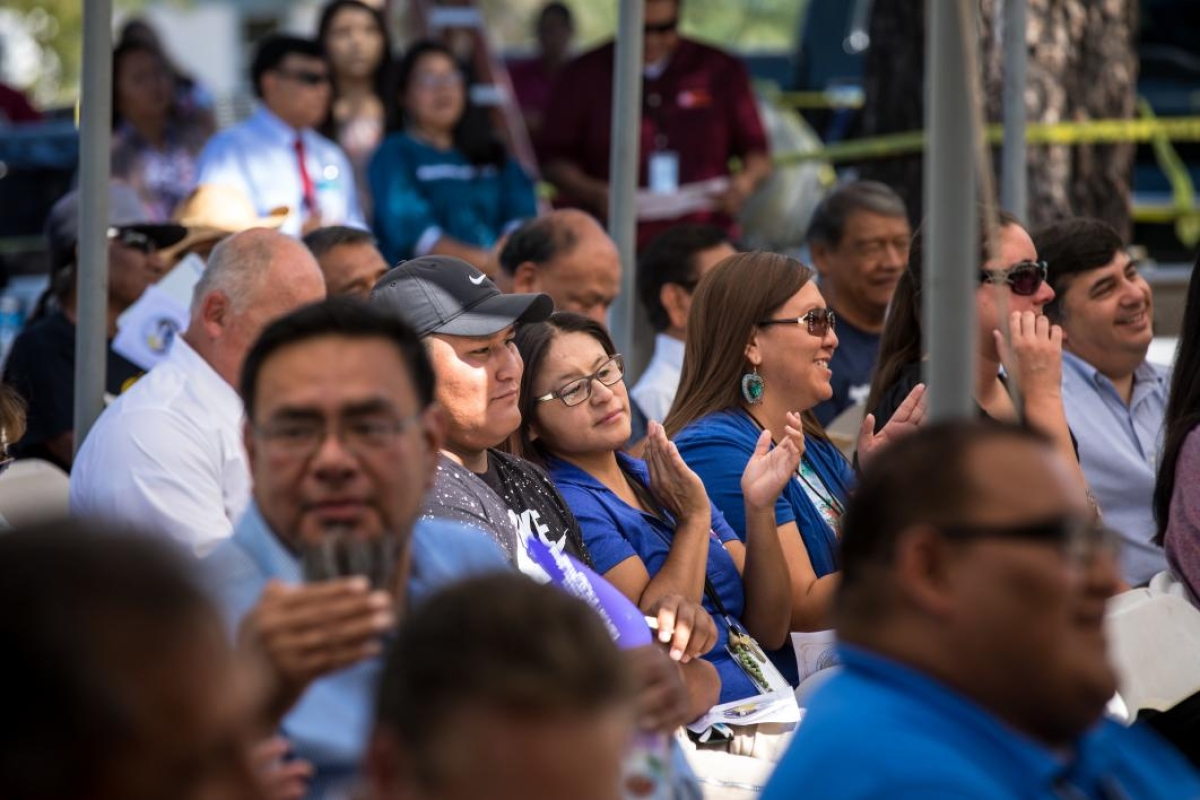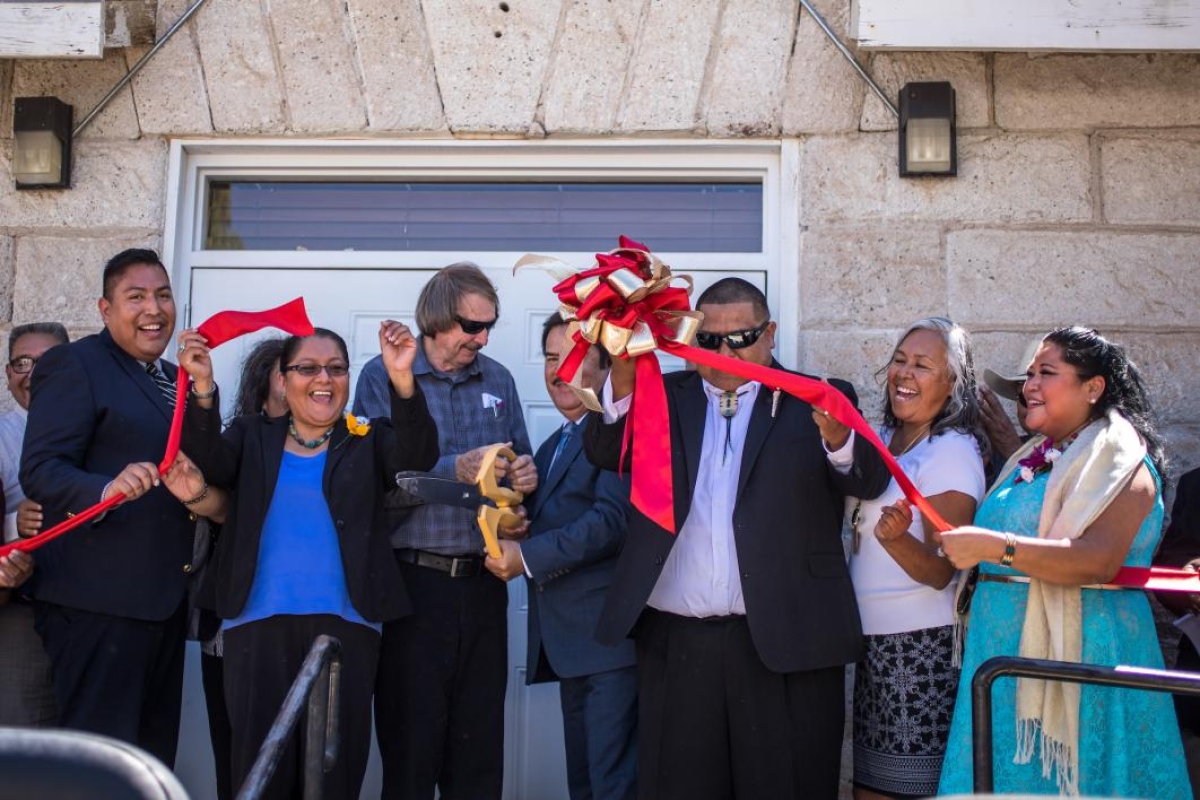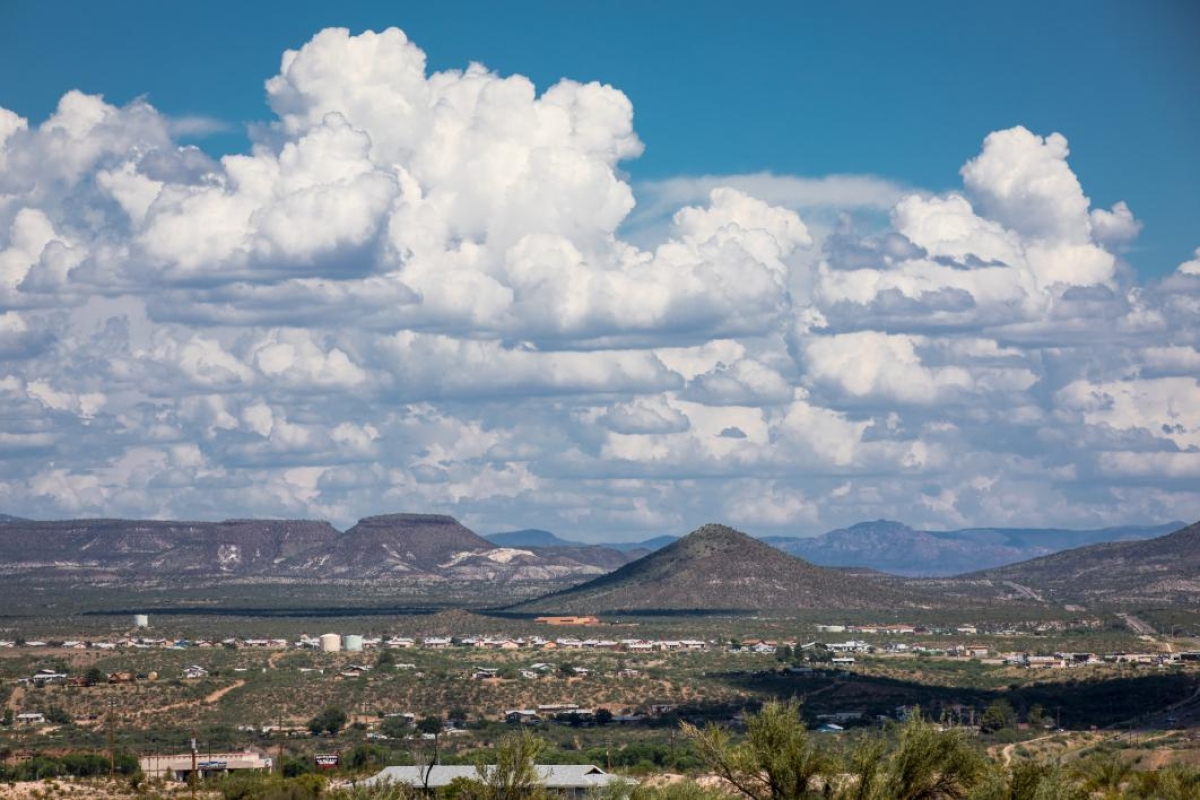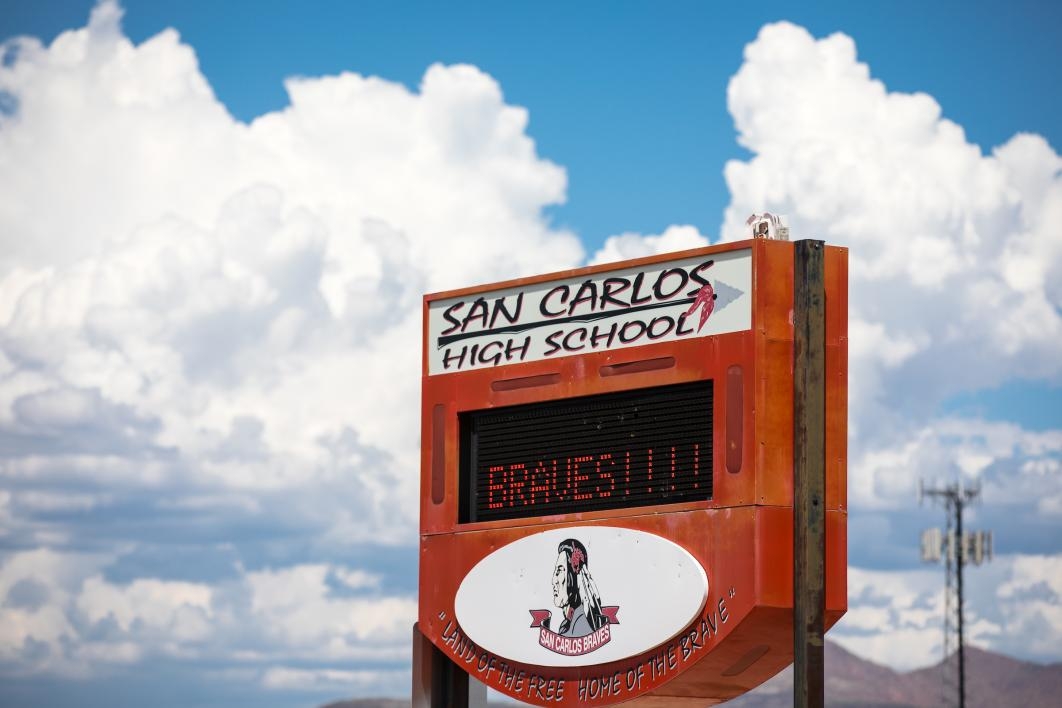New San Carlos Apache College aims to preserve culture, prepare for future
Tribal values key to new school; ASU staff offered insight to community members on how to create an institution from scratch
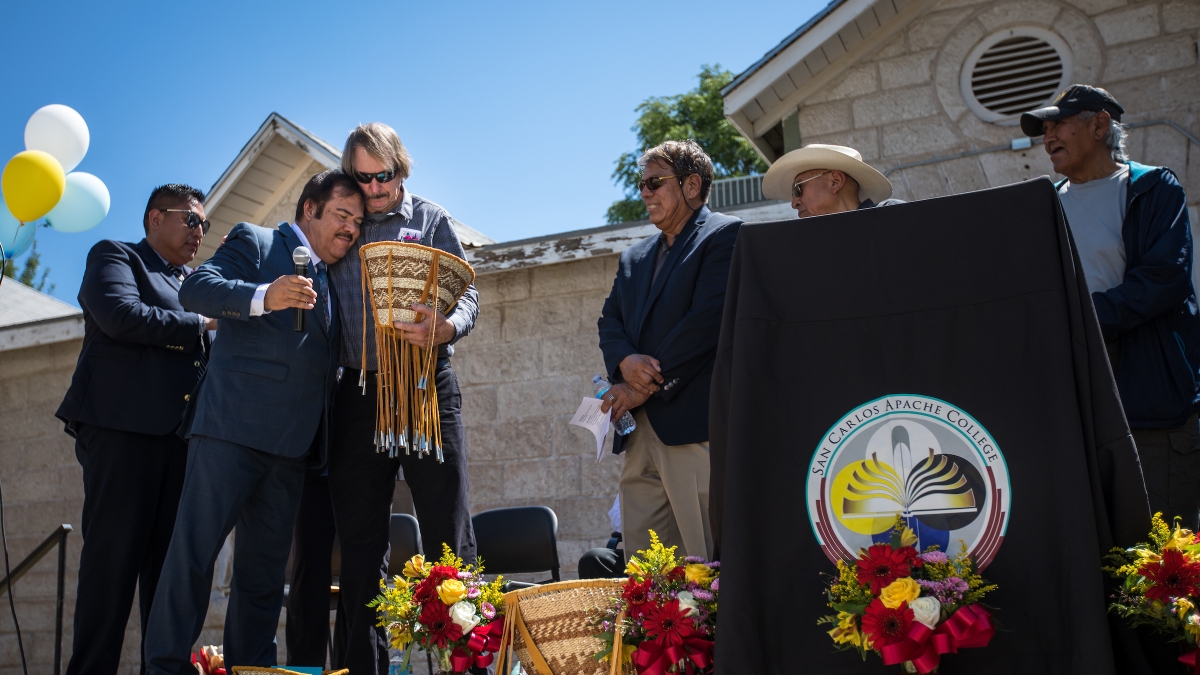
When the first students walk into classes at the new San Carlos Apache College on Monday, they’ll not only be learning biology and accounting, they’ll be part of a mission to preserve their language and culture and drive economic prosperity in their community.
Arizona’s third tribal college opened Friday on the San Carlos Apache Reservation after two and a half years of intense planning and preparation, much of it done with the assistance of Arizona State University.
More than five years ago, the chairman of the San Carlos Apache Tribe, Terry Rambler, had a vision to create a college, and he asked ASU President Michael Crow for help. The Apaches were able to leverage the expertise of Maria Hesse, vice provost for academic partnerships at ASU, and Jacob Moore, the university’s assistant vice president for tribal relations.
San Carlos Apache Tribal Chairman Terry Rambler speaks at the grand opening of the new San Carlos Apache College on Friday. Photo by Charlie Leight/ASU Now
At Friday’s ribbon-cutting ceremony, Rambler said that San Carlos Apache College is for everyone in the community — high school students, tribal employees and elders.
“This is the beginning of something great. This is a way to say no to alcohol and drugs by using our minds in a good way and not abusing them,” he said.
“This is a way to regain respect among ourselves. This is a way not to lose our identity as Apaches.”
Hesse is the former president of Chandler-Gilbert Community College, and was on the team that founded the college in the late 1980s. So she was able to offer insight to the community members on how to create an institution from scratch, working with the tribe to have a long-term plan in place to ensure they would open on time.
“If you want to start classes in August, here’s what you need to do in July,” she said. “What are the priority hires? If you want to do electrical wiring in July, you need to rip everything out by June. We talked about the program of study and class schedule.
“Even if they start with 50 students, it’s a humongous undertaking.”
The college's founding president, Martin Ahumada, thanks ASU Vice Provost for Academic Partnerships Maria Hesse, by giving her a tribal burden basket at San Carlos Apache College's grand opening. Photo by Charlie Leight/ASU Now
Classes will be held in a stone building in downtown San Carlos that was the previous tribal administrative headquarters. Workers were still renovating the building into classrooms during the ceremony on Friday and expected to work straight through the weekend until the start of classes Monday morning.
At first, the college will offer general-education courses in English, math, biology, chemistry, accounting and computer literacy. Eventually, the curriculum will be expanded and associate’s degrees will be offered. Tuition will be $34.50 per credit hour, so a full-time semester of 12 credits would cost $414.
For now, San Carlos is offering classes as a site of Tohono O’odham Community College, a tribal college in Sells. That allows San Carlos to be accredited until it earns its accreditation independently in about four years.
Accreditation is critically important because it allows students to qualify for financial aid and for their credits to transfer to universities. Like at all Arizona two-year colleges, students at San Carlos will be able to map out their majors to efficiently transfer to ASU.
The college will have core values based on the Apache concept of Go’zhoo — to be at peace.
Tohono O’odham Community College is a good blueprint for how tribal culture is integral to the vision. All students take two classes in “Himdag” — the lifelong elements of culture, values, language and way of life for the tribe. The college has a committee made up of staff, faculty, students and community members that works to incorporate “Himdag” into every aspect of college life.
“They don’t teach anything that’s out of sync with their culture,” said Moore, who is a member of the Tohono O’odham tribe.
San Carlos Apache College President Martin Ahumada receives a hug from one of his former mentors following the grand-opening ceremonies. Photo by Charlie Leight/ASU Now
Martin Ahumada, the new president of San Carlos Apache College, said that preserving culture is vital for the Apaches.
“It has been known for many decades that the knowledge of one’s native tongue and being well grounded in your cultural traditions is important for self-esteem,” said Ahumada, the former interim president of Dine College on the Navajo reservation, the country’s first tribal college, founded in 1968.
Among the San Carlos Apache, few members younger than 35 know the language, according to Cordella Moses, a curriculum specialist for the tribe’s language-preservation department. She helped to design the Apache Language and Culture course, which is offered at 5 p.m. every Monday and Wednesday this semester.
“A lot of people think ‘culture’ refers to ceremonial dancing, but culture means a lot more than that. It’s our art, how we make moccasins and beadwork, and our meditation and our prayers,” she said.
“If you don’t know the language, you can’t pray.”
Ahumada said that besides Apache culture and the general-education courses, he would like to prepare students for jobs in San Carlos, which has a casino and a new medical center.
“We want courses in health sciences, natural resources. We’re going to explore cybersecurity and entrepreneurship,” he said.
“We know the Apache way of life was long anchored in farming, and we want to enable members of the community to return to farming.”
Video by Jamie Ell/ASU
The college received a $1.5 million federal grant in 2014 to get started, and the tribal council recently agreed to fund it with $2.5 million.
ASU’s support for the tribal college is part of a larger agreement between the university and the community, signed in 2013, that will include design and construction assistance when the San Carlos Apache are ready to build a campus; college-readiness and healthy-lifestyle programming for young people; and academic counseling and personal support for San Carlos freshmen and transfer students through the Native American Achievement Program at ASU.
Hesse said that Crow agreed with Rambler’s idea of jump-starting the tribe’s business community with the college.
“He felt like they were like-minded in their shared belief that education brings opportunity and hope to our youth while fueling economic development,” she said at the opening ceremony Friday.
“You can address the workforce training needs for employers, and you can offer lifelong learning opportunities to members of this community.”
Like many reservations, San Carlos faces poverty, unemployment and other socioeconomic challenges, Moore said.
“From a K-12 perspective, any number of our tribal communities have struggling schools. Someone with a more critical eye would say, ‘How can they be a feeder system to a college?’
“But the beauty is this idea of having a vision and some expectation that these students do have someplace to go and a future.”
Top photo: Founding President Martin Ahumada (second from left) thanks Tohono O'odham Community College President Paul Robertson by giving him a tribal burden basket at the grand opening of the new San Carlos Apache College in San Carlos, Arizona, on Friday. Tohono O'odham Community College is using its accreditation to cover the new college to allow its students to qualify for financial aid and for their credits to transfer to universities. Photo by Charlie Leight/ASU Now
More Arts, humanities and education

ASU+GSV Summit tackles big questions around AI, technology, education
Editor's note: We'll be updating this story daily throughout the summit. The annual ASU+GSV Summit kicked off in San Diego on Sunday, drawing thousands of leaders for a four-day event that focuses…
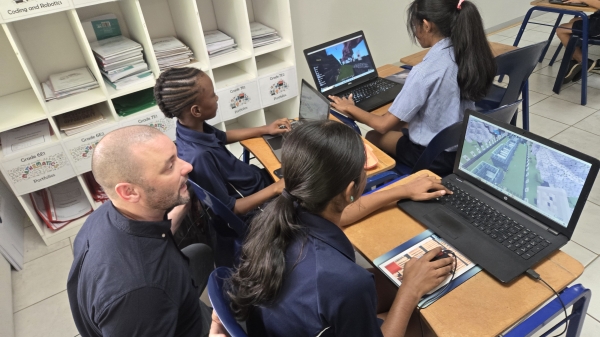
Game on: ASU, Endless announce partnership to scale personalized learning solutions
In a public conversation Monday about gaming and education at the ASU + GSV Summit, Arizona State University President Michael Crow and Endless Network founder Matt Dalio announced the creation of…
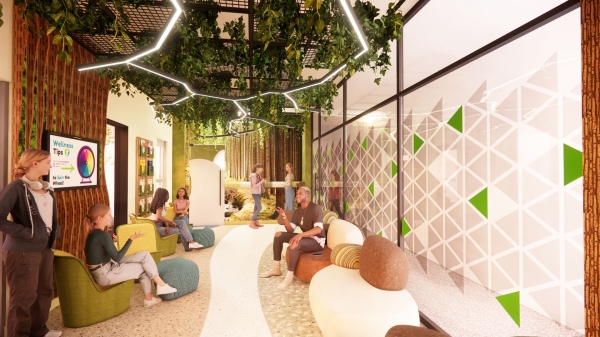
The Design School shines at interior design conference
The Interior Design Educators Council (IDEC) held its annual conference this March in New York City, welcoming interior design leaders who presented research, networked and learned about the latest…
